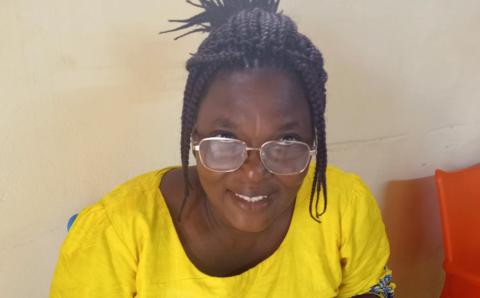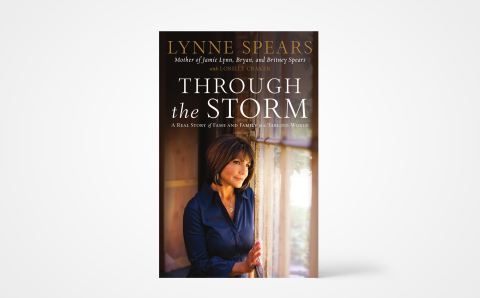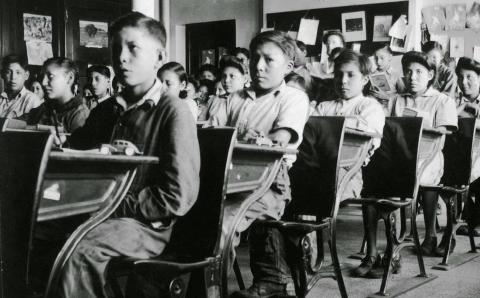Christians and Guns
We as people of faith are called to defend our families and extended families at our worship facilities (“Big Questions,” May 2021). I see this as a biblical call from the Lord. For reference, I find my Bible provides the proper justification: Exodus 22:2 and Luke 22:35-38. … America’s Second Amendment did not come from nowhere. It started back in 1791 as a part of our absolute and principal rights of personal security, liberty, and private property.
Wayne Mokma // Holland, MI
My Bible in all four gospels says that the apostle Peter and others carried a sword (Matt. 26:51; Mark 14:47; Luke 22:36; and John 18:10). Our nation would not be here if we were defenseless.
Bernard Luurtsema // Holland, Mich.
Spiritual Pride
I read Shiao Chong’s editorial “Revival and Spiritual Pride” (June 2021) and said “yes, he has it correct” over and over again. I was asked a few months ago … what is the matter with the Christian Reformed people of the area, and my response was “pride.” I think this pride is of a spiritual nature and a country of origin nature. ... I am asking that the CRC look closely at itself and realize the pride and tendency to put down other faithful churches is not kingdom-building behavior.
Pam Adams // Sioux Center, Iowa
I always appreciate editor Shiao Chong’s writings. He has an amazing sense of (the) heart of the matter and a clear way of articulating it. I especially appreciated his most recent editorial titled “Revival and Spiritual Pride.” That particularly resonated with me because my husband and I have left the denomination for some of those same reasons. My four siblings and (their) families have also left the denomination, and we all attend elsewhere. What is ironic to me (is that) on the very next page there is an article titled, “Vigilance Is Needed.” It is a call to return to the former standards, to circle the wagons, to watch out for slippage. Hmm. The two seem to be at odds with each other.
Gerda Van Stralen // Battle Creek, Mich.
I agree that our denomination needs revival and that spiritual pride is a barrier to that revival, but is the solution immersing ourselves in Scripture, even with humble hearts? Our collective pride comes from emphasizing precision theology. Parsing Scripture more intensely will only feed that pride. What if instead we took the truth we already know and just practiced it? In my own experience, following Jesus outside of the church and into the community, loving and accepting those who would never enter our church building, and showing compassion and kindness to those who reject our faith is humbling and opens me up to a more vibrant, growing, and humble faith in Jesus.
Rob Jansons // Monroe, Wash.
Science and the Bible
I can agree with the thrust of the article (“What Should We Do When the Bible Seems to Disagree with Science?”, July/August 2021), except the article doesn’t go far enough in answering what we should do when science and Scripture do come into conflict. Sometimes the answer is clear, as with the longstanding conflict between Scripture’s account of how God created and the answers science is so desperately trying to prove. On the whole, the scientific community is secular, refusing to believe what Scripture says about the matter. Therefore in such cases of conflict between the two, as believers we have to reject that there is a conflict, because the only alternative then is to start rewriting Scripture. We ought not to rely on science to prove or disprove the authority of Scripture.
Ed Grootenboer // Kitchener, Ont.
Intention and Impact
The statement by the editor that “We need to repent from unintended sins and wrongs” merits challenging (“Intention and Impact,” July/August 2021). Notwithstanding the trauma surrounding the issue of residential schools there appears to be an element of “virtue signaling” with respect to who the “we” is that the article is addressing. Suggesting that members of the CRC in Canada need to repent for something that predates their immigration in the 1950s would require them to appropriate guilt that does not properly belong to them. It undermines the process of reconciliation.
Lubbert van der Laan // online comment
The disconnect between intent and outcomes is one dimension of the problem. When I ask what beliefs and analysis led me to act on my intent (or values) in the way I did, it leads to deeper insights and more beneficial change. For the CRC community, revisiting the way we dealt with the Doctrine of Discovery report in 2016 could be a helpful step on the road to genuine reconciliation. It is unfinished business in the CRC.
Kathy Vandergrift // online comment
Listening to LGBTQ Believers
Thank you for this article (“Synod 2022 Delegates to Hear from LGBTQ Believers,” July/August 2021). I was one of the signatories of a recent overture to Synod regarding the human sexuality report signed by over 25 students from 10 post-secondary institutions (Overture 20, Agenda for Synod 2021). In our overture, we suggested some ideas for a “plan of action to continue careful deliberation of the complex issues around human sexuality (particularly gender identity, same-sex orientation, and same-sex marriage).” The highest priority task we suggested was to “create a safe listening space for LGBTQIA+ people associated with the CRCNA to submit their concerns and stories of experiences in the church without fear of repercussion.” Although I have concerns about how Synod 2022 might hear from LGBTQ+ people in a safe and welcoming way, I have hope that this Council of Delegates decision will invite a more generous dialogue in a posture of Christlike unity.
Jess Andrews // online comment









